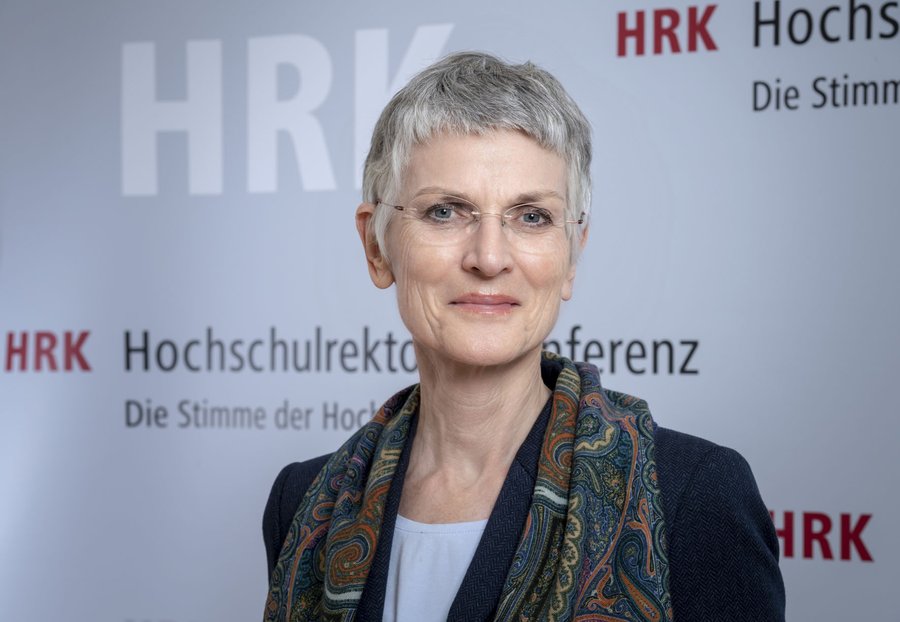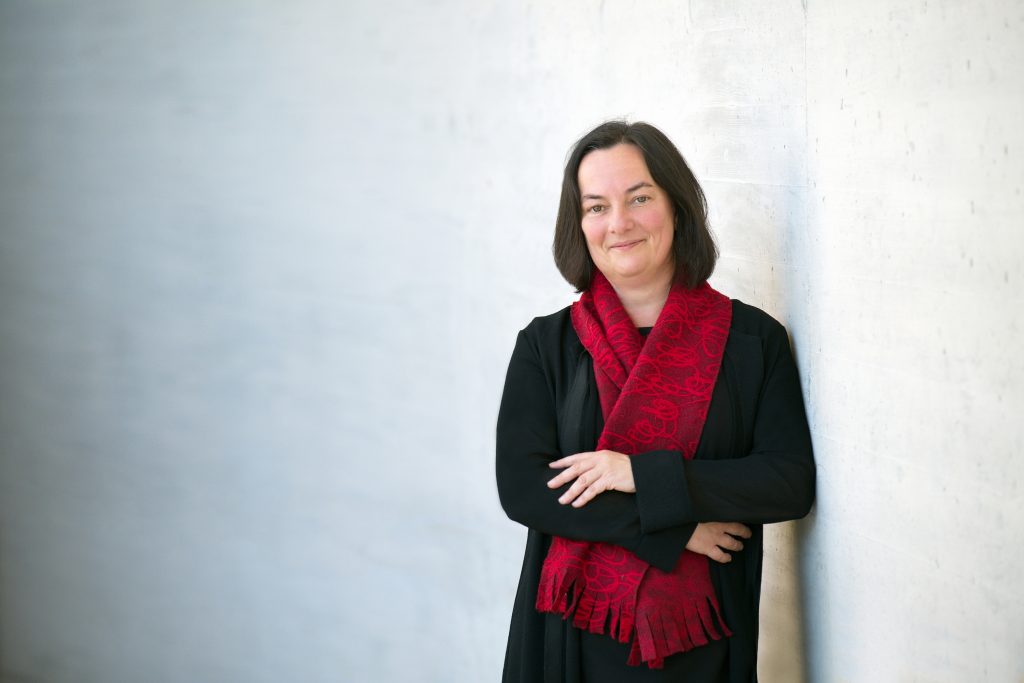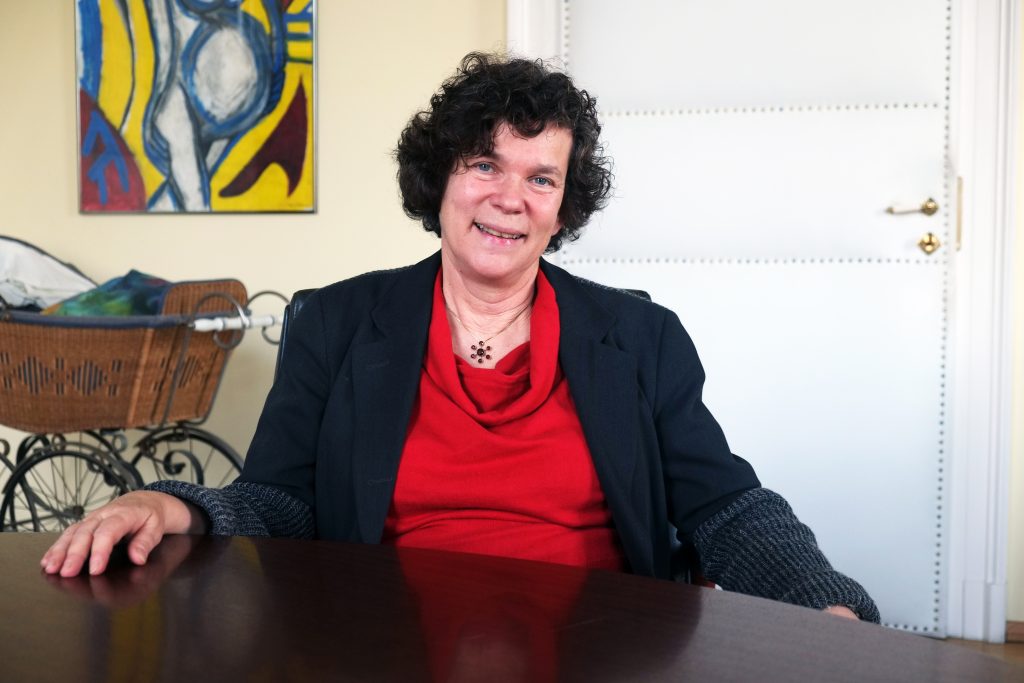Today hardly any issues are as important as equity. Universities have acknowledged this and taken up the cause. Nevertheless, only a few women hold the presidency of a university. And no East Germans. How is this still possible today?
In all likelihood, the next professor for Government and Policy Research — about whose appointment you can read more in the previous article — will be white, male and born in the former West German federal states. He can’t help it, yet this makes him the prototype of a lecturer at a German university. Moreover, he thus fits almost perfectly into the image of a university rector or president.

According to a study by the Centre for Higher Education Development (CHE), the average university head is 59 years old, white and 75 percent male. Out of 84 German universities, 21 are headed by a woman, explains Professor Dr. Johanna Weber. As Vice President of the German Rectors’ Conference (HRK), she is, among other things, responsible for equity and diversity and is one of the few women to hold the chair of a university — that of the University of Greifswald.
“The topic is crucial for all fields of higher education,” she says, adding that the level of equality, especially in leadership positions, leaves much to be desired. She sees reasons for this on another level. „Unfortunately, not even a quarter of all professorships are filled with women. This means that, by default, there are far fewer women than men available for such positions.“
The HRK had acknowledged this problem and pointed it out explicitly at its last General Assembly in November, says Weber. Despite the small proportion of female members, much has been done in the past years. „Gender equality is generally an essential aspect of all the issues that we deal with in the HRK. Moreover, the female presidents and rectors meet regularly to exchange views on current problems and initiate activities that specifically address these issues. Most recently, this included a resolution on women in leadership positions and a paper against sexualised discrimination and sexual harassment at universities,“ states the Vice President.
Quotas, on the other hand, are always the last option for her, “not only because they generally feed the suspicion that the best can’t get ahead. The most important reason is that the proportion of women among students already varies greatly depending on the subject. But it does not make sense to set either quixotically high quotas or low ones orienting at subjects with the fewest women.” This is why Weber regards the cascade model as more suitable: “The targeted women’s ratio is determined by the ratio of the career level below. Then, however, the number of women should really increase significantly,” she explains.
Lack of female professors as a cause?

The reasons for this problem must therefore be sought elsewhere. The proportion of women who are studying even tends to exceed that of men. However, looking at higher rungs of the career ladder, such as doctorate or habilitation, less and less women can be found. Professor Dr. Johanna Mierendorff explains this phenomenon similarly. She is Vice Rector for Personnel Development and Structure at Martin Luther University. But she also points out: “Once women are holding junior professorships or have habilitated, most of them get tenure. So there is more of a lack of women applying for professorships. Career disruption happens at a much earlier point.”
According to Vice Rector Mierendorff, the University of Halle, with approximately 25 percent of its professorships being held by women, is in line with the national average. Only a few institutions are far ahead, for example the three Berlin universities. Mierendorff assesses that this has to do not only with selection by the universities, but also with career ideas and self-confidence of women when applying for high level positions. In addition, working conditions are demanding.
That is why the Vice Rector aims to raise awareness for implementing acceptable working conditions in each sphere of work. “For example, some faculties have committed to not hold faculty board meetings after 4 pm.” Moreover, Mierendorff continues, this would affect men and women equally. “Many men now take parental leave as well. Much less than women, of course, but it affects them as well.”
As is so often the case, it all comes down to being able to balance family and career. In addition to creating working conditions that make a career and an academic life possible, there is another essential point, she explains. “And that is that especially in the transition, for example between studies and doctorate, there are people who motivate you, and say you can do it. And partners who also have your back.“
Approaches in Halle
The University of Halle, like probably most universities, is committed to equity. And a lot is being done at Martin Luther University, at least that is what the pile of measures and programmes implies. Just like at other universities, there is an office and officer concerned with equal opportunities. But that is not all. There is also a family office, a mission statement on equity, a concept for the future of equity, there is documentation of this concept and target agreements between the Ministry of Science and the university, and not to forget the now 13th women’s promotion plan, a final report on the implementation of the research-oriented equity standards of the German Research Foundation. It’s hard to accuse the university of inaction.
Prof. Mierendorff also elaborates on two programmes that are designed to provide direct counselling and support: “One is our mentoring programme that is organised as part of our Leipzig-Halle-Jena University Partnership.” Young scientists are provided with a mentor with whom they can plan their professional biography and benefit from the networks of experienced scientists.
There is also a coaching programme at the MLU, which Mierendorff considers to be even more useful than mentoring, as it is even more intensive. “Coaching is par-ticularly used when women are at a point of transition and have to make career decisions. I would say that coaching is a neutral place for consulting, support and self-assurance: Can I do that? Do I want that? What are the conditions that exist in the entire academic world — not only here in Halle — which influence whether or not I can or cannot manage such a career?” Should the funding via the European Social Fund expire one day, this position will in any case be continued through budgetary resources, says Mierendorff.
Something is indeed happening. In the past ten years, the proportion of female professors has risen from 16 to 25 percent. But is that enough in view of the numerous measures taken? With regard to the large number of female students, the figures should already be much higher. For Professor Mierendorff, at any rate, it is a promising sign that the university has created a successful foundation. In addition to what she says are far-reaching measures — mentoring, coaching, family office and counselling — , she believes there has also been an increasing awareness in each field of action, which, however, still needs to be improved.
“What has also changed is that in the appointment procedures, it is actually no longer possible not to include women on the appointment lists. There has to be a very strong justification for why the best candidates are all men. But if that’s the way it is, that’s the way it is, and there is no reason for doubt as it is a matter of selecting the best”, says Johanna Mierendorff.
Alternative Reality

The Martin Luther University Halle-Wittenberg is one of the oldest universities in the country. Accordingly, it has had a large number of rectors to this day — male rectors, mind you. But one time, things almost turned out differently. In 2014, the former Vice Rector Gesine Foljanty-Jost was narrowly defeated by the then acting Rector Udo Sträter.
She was eager for the challenge and had received the most votes in the election to the academic senate, which she took as motivation to run, she explains. When asked whether the fact that she was a woman played a role, she answers as follows: „I did not feel discriminated against. But the question of equity is no longer determined just by forms of blatant inequity. Whether at university or elsewhere, not only rational criteria are relevant when choosing candidates, but irrational criteria as well. The latter are fed by a notional image of a trustworthy leader, be it in politics, business or science. And this image is still predominantly male due to a lack of female role models. But things have been changing quite a bit. With the increase in the number of women in leadership roles, new female role models are already emerging which also have an impact on voting behaviour, too.”
Gesine Foljanty-Jost emphasises that it is essential to improve equal opportunities, particularly in the appointment procedures. In her opinion, one should reopen application procedures in which no or too few women have applied.
Looking at the Neighbouring University

Lack of equity is a national problem that can only be solved regionally. But no university can break through the glass ceiling alone. Each has to make their contribution. A look at the University of Leipzig is worthwhile. Beate Schücking has been Rector of the University there since 2011, the first female after more than 600 years and 967 male predecessors.
The fact that she is the first woman in this office is quite a special situation to her. “Of course it is important for women to see that women make it into leadership positions and that they do a good job there. This has certainly been a concern to me as well,” she says. But it had not been her sole motivation to take up a leadership position.
Nevertheless, she admits it is important that there are role models. „And I do believe that it is quite beneficial for institutions to alternate at times. That is, to have women in leadership positions, too. Now, it does not need to be forced. But it certainly helps institutions, just as it helps to have quite a number of female professors broadening the spectrum. This allows institutions to go ahead and review their perspectives and to get even better, and that’s what it always has to be about,“ she continues.
The University of Leipzig has developed a whole catalogue of measures to address the problem of equity, too. The numbers of female professors have risen to a similar proportion as in Halle. Rector Schücking is staying confident about further change: „I assume that in the foreseeable future an increasing number of female professors will be reflected in an increasing number of female rectors and presidents.“
The East Germans
And then there is another finding that may not be surprising at all — and yet it really no longer fits our time. Among all 84 rectors and presidents, there is not a single one from the east of Germany. This is a difficult topic on which there is still too little research. Even the HRK does not offer a simple rationale for this and points to the low level of research.
Professor Mierendorff (University of Halle) sees it this way: “After the fall of the Berlin Wall, many professorships were discontinued. University leaders, the people who prepared and carried out the reorganisation of the universities, came from West Germany, as did teams of advisors. As a result, important positions and professorships were filled primarily with West Germans. Over three decades, this has led to the consequences that are still visible today and are rightly criticised these days”. It is difficult to tell how this situation is going to develop in the course of time, she says.
Even the German Chancellor speaks of a real deficit and offers an attempt to explain it in an interview with Der Spiegel: “The reason may be that many were already too old in the period around 1989/90. With my 35 years of age, I would have had a hard time climbing the career ladder in the business world at that time, too. If you were a child back then, you can of course still reach top positions.”
Raj Kollmorgen, sociologist at the University of Applied Sciences Zittau/Görlitz, provides a different approach. He assumes that many East Germans do not have the habitus of the upper class, their self-confident appearance. Moreover, East German families might focus more on security and stability. The Chancellor also attributes it to a certain mentality in the East when she encourages East Germans to push into leadership positions.
Others, such as the political scientist Lars Vogel of the University of Leipzig, reject this interpretation. He sees the problem more in the networks of West Germans. To regional broadcaster NDR he says: „In many areas we see that elites recruit from within themselves. In other words: bosses like to find a successor who is similar to them.“
However, it has not always been the case that there were no East German university rectors. From 1992 to 1996, the University of Halle had a rector who was born in Magdeburg, Gunnar Berg. He sees the reason for the lack of East Germans in top university positions in the fact that today mainly lawyers and social scientists occupy these positions. There cannot possibly be any East Germans among them, he says, because their professional careers do not allow for it. In his time, only natural scientists, mathematicians and technicians could be found at East German universities. He himself is a physicist.
There are different explanations, but many people agree on one thing: This is a problem that should be solved in the course of time. Today, Gunnar Berg says, it is all about qualifications. The Rector of the University of Leipzig also speaks of a generational change that is slowly taking place. Of course, however, the selection of the best will still be the determining factor, she says.

A temporary problem?
Both deficiencies therefore have one thing in common. They should be resolved over time, whether by various measures or simply through a generational change. All the people in charge portray a bright future. It’s what they have to do. At least one thing is certain: The problems have been identified and they are being discussed. At any rate, this is a first step into a more equitable future.
- Die deutsche Version dieses Artikels findet Ihr hier.
Translated with contributions from: Hannah Bramekamp, Konrad Dieterich, Anne Jüngling and Laurin Weger
